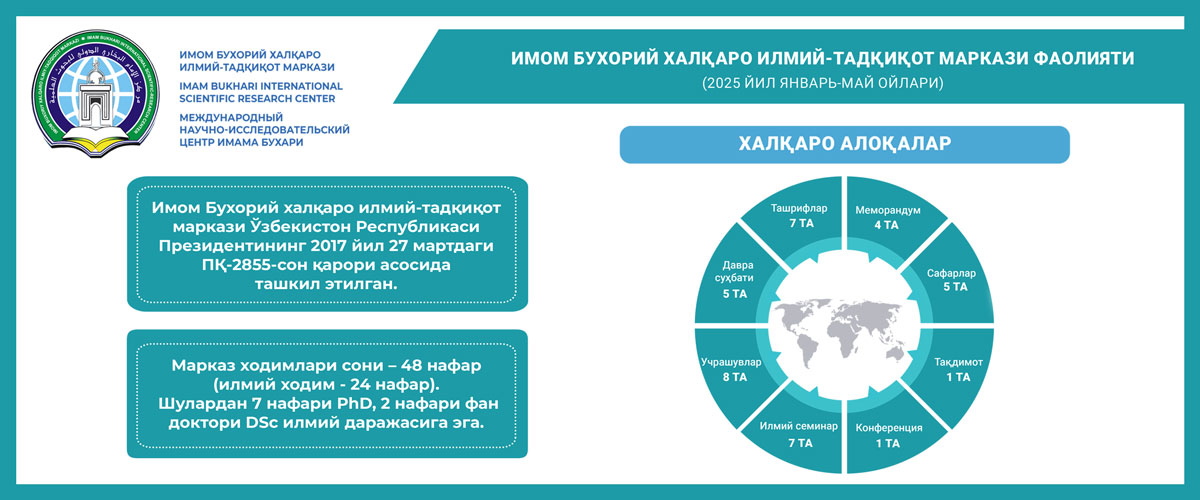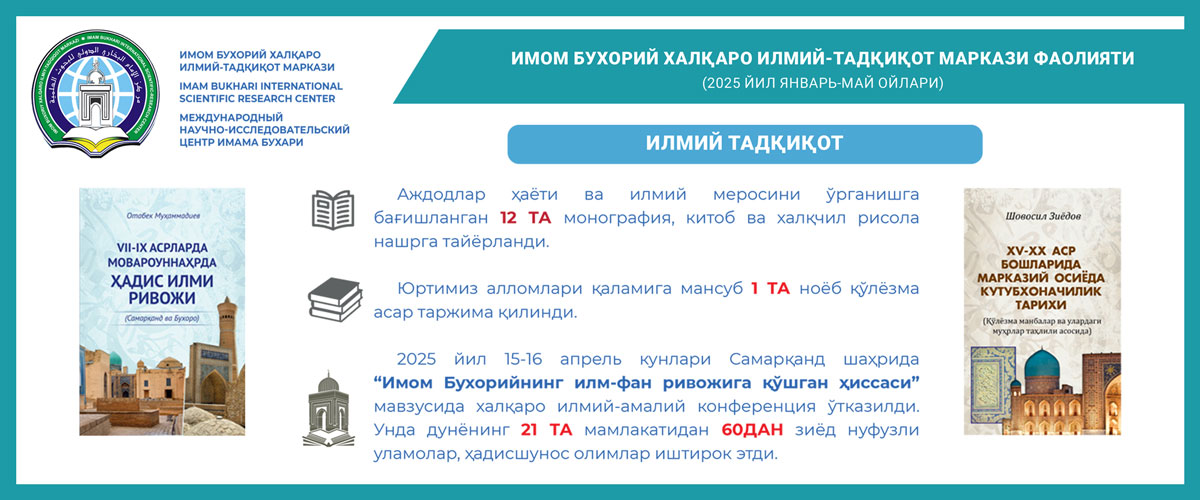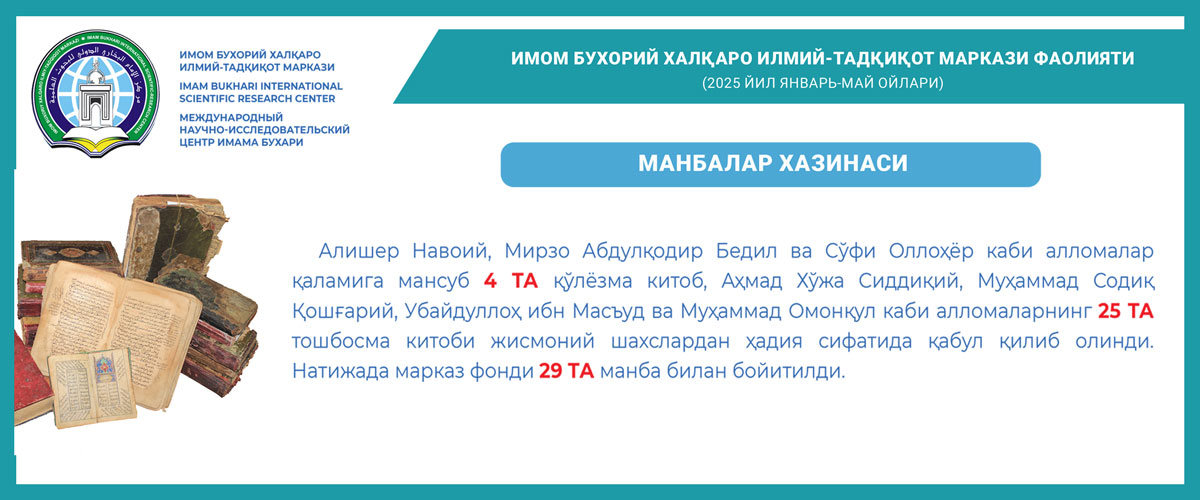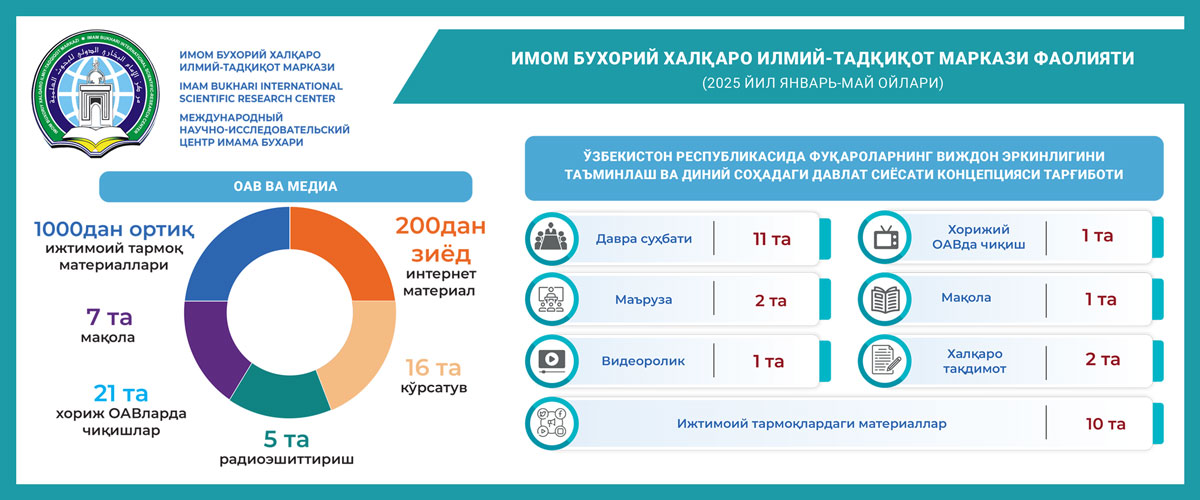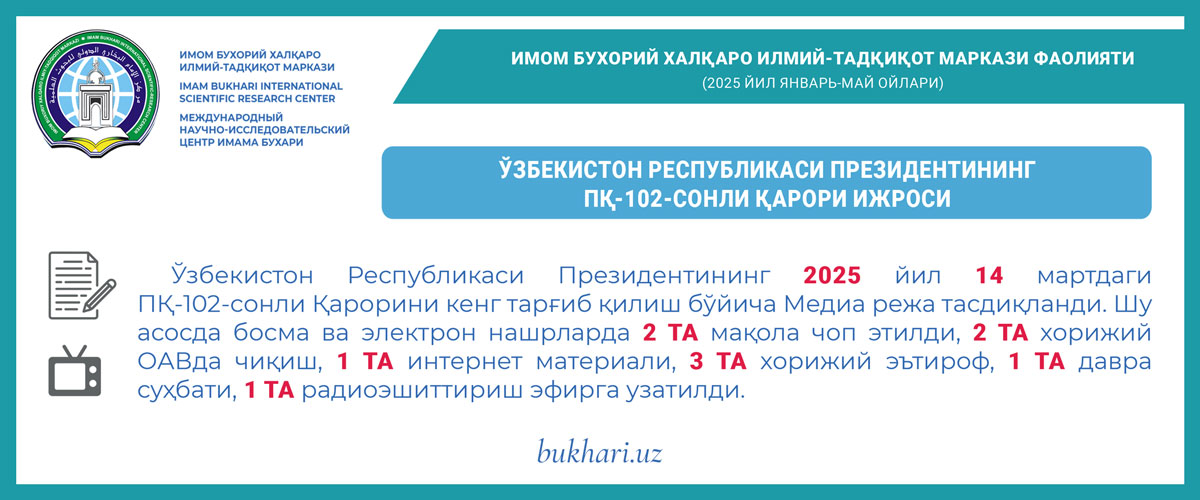Al-Qasim ibn al-Husain is supposed to have compiled a “divan” (a collection of literary works), but it is a pity that this collection of verses did not reach us. It is thought to have been destroyed during the Mongol invasion of Khoresm. Therefore, the pieces of his verses and samples of his literary career on different subjects provided in the memoirs of the traveller Yaqut Hamavi are of great importance.
It should be taken into consideration that as a result of the Arabic invasion and the introduction of Islam, the Arabic language became very popular among the learned people and in the educational circles. It was natural that al-Qasim ibn al-Husain had a good command of the Arabic language and created his literary works in it. The poet created his works effectively in different genres of Arabic literature such as “madhiya”, “fakhriya”, “ghazal”, etc. During the conversation withYaqut Hamavi, he said: “In my poems, I do not glorify the rulers and the men of high position. The heroes of my creative works are usually imaginary persons”.
According to the form and content, the poems written by al-Qasim ibn al-Husain often resemble the works of the ancient Arabic poets, i.e. they have their own style of writing. Reading them, one can notice some exaggerations in them. Most of his works concern the life and culture of the Arabian Bedouins. Though he had nothing to do with the Bedouin culture of life, he seems to have studied the materials and creative works of the Arabian poets dealing with them.
Alongside with his poetry, al-Qasim ibn al-Husain seems to have created precious works in different branches of knowledge and education. As he was a highly educated and enlightened expert in different branches of science, he created his works not only in the field of literature but also in the fields of language, poetry, prose, law, tafsir, hadith and commentaries.
In his work, “Mu’jam al-udaba” Yaqut al-Hamavi mentions the following works created by al-Qasim ibn al-Husain:
- “Sharh al-mufassal li-z-Zamakhshari”, a commentary written on the work “Al-Mufassal” by az-Zamakhshari;
- “As-Sabiqa” (Ingot gold), a commentary written on the same work of az-Zamakhshari;
- “At-Tajmir” (Unification), a commentary written on the same work “Al-Mufassal” by az-Zamakhshari;
- A commentary written on the work “Saqt az-zand” by Abu A’la Maari;
- “At-Tavdyur” (Explanation), a commentary written on the work “Maqamat” by al-Hariri;
- “Lahjat ash-Sharia” (The language of law of Shariah), a work devoted to the legal vocabulary;
- “Kitab as-sir fi-l-i’rab” (A book of secrets of flexion);
- “Kitab shar al-abniya” (A book explaining the unchangeable features of the grammatical forms);
- “Kitab az-zavaya va-l-abaya” (A book about secret things), devoted to the grammatical rules;
- “Kitab ujala as-safar fi-sh-she’r” (An immediate visit to
poetry); - “Kitab badai al-milh” (A book of expressive means);
- A commentary written on the book “Tarikh al-Yamini” by
Abu Nasr al-Utbi, etc.
Al-Qasim ibn al-Husain, a man who reached high levels in literature and poetry, seems to have lived under poor conditions. This can be proved by the conversation held with Yaqut Hamavi. The traveller writes the following lines from the tongue of the poet: “”I remember that I have only once been remunerated by a man”, said al-Qasim ibn al-Husain, and “it was in Bukhara”. He came to Bukhara in search of knowledge and education, and he wanted to learn the styles of reading the Holy Qur’an”.
Al-Qasim ibn al-Husain attended the lectures and conversations held by a well-known scholar in Bukhara Abu Abdullah Muhammad ibn Ahmad al-Jayhani and some other leading figures in this field. Seeing his ability in poetry and scientific potential, they presented him with seventy dinars and promised some more in future. “If I were not in need of money, I would not take this fee”, said al-Qasim ibn al-Husain.
Once al-Qasim ibn al-Husain told Yaqut Hamavi that one of the leading officials in the royal court had offered him a position to sit on a piece of carpet beside him and read him poems for a definite sum of money but al-Qasim ibn al-Husain had kindly refused this offer. Yaqut Hamavi writes further: “When I asked him about his daily expenses, he answered: “I was left some property by my father and this is sufficient for me to be saved from the need”. Al-Qasim ibn al-Husain’s life ended tragically: he was killed in the massacre of the Mongol invaders in 1221.
 Imom Buxoriy xalqaro ilmiy-tadqiqot markazi bukhari.uz
Imom Buxoriy xalqaro ilmiy-tadqiqot markazi bukhari.uz
